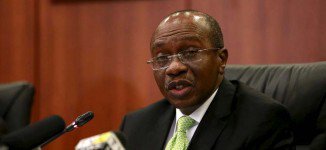he governor of the Central Bank of Nigeria, CBN, Godwin Emefiele, said that the federal government will toll the Lagos–Ibadan highway, the second Niger bridge underway and other roads to pay off the loans used in its construction. Emefiele made the disclosure on Wednesday at the closing ceremony of the 12th Banking Committee retreat in Lagos, The Guardian reported.
According to Mr. Emefiele, all three projects are funded by Infrastructure Corporation of Nigeria, InfraCo.
“Tolls will be charged on all highways. And we know that in many other countries in the world tolls are charged on the roads because these projects are commercially viable. “
“They (the loan) can be repaid with tolls so that maintenance is done on a regular basis, and people pay for it and enjoy good roads, and enjoy good facilities because that is the only way we can finance the infrastructure of this country. , which is the large amount of money that is needed. “
Emefiele said that the CBN, the African Finance Corporation and the Nigerian Sovereign Investment Authority contributed N1 trillion of InfraCo’s N15 trillion shares, adding that the remaining N14 trillion would be accessed from the debt market.
He said that the federal government had approached CBN to provide some kind of bridge funding which is nearly 170 billion naira that was provided for those projects to move forward with funding.
“I have been told that the total scope of those three projects is slightly over N1 trillion, but the figures are being worked on,” Emefiele said.
“And I think by the time the asset managers are onboard effectively, the details of those projects and the remaining aspects of those funds would come through the debt and that’s where the asset managers would come in with full scope and then us. I would know the detailed cost of those three projects. “
The CBN governor said he is “reasonably optimistic that more than 50 percent or two-thirds of this money will be raised locally.
“Before starting to think about accessing international financing, we would try as much as possible to limit debt in foreign currency, especially knowing that some of these projects and income will be generated with local currency.
“When foreign currencies are needed, we will also take them and then we can use them.”

